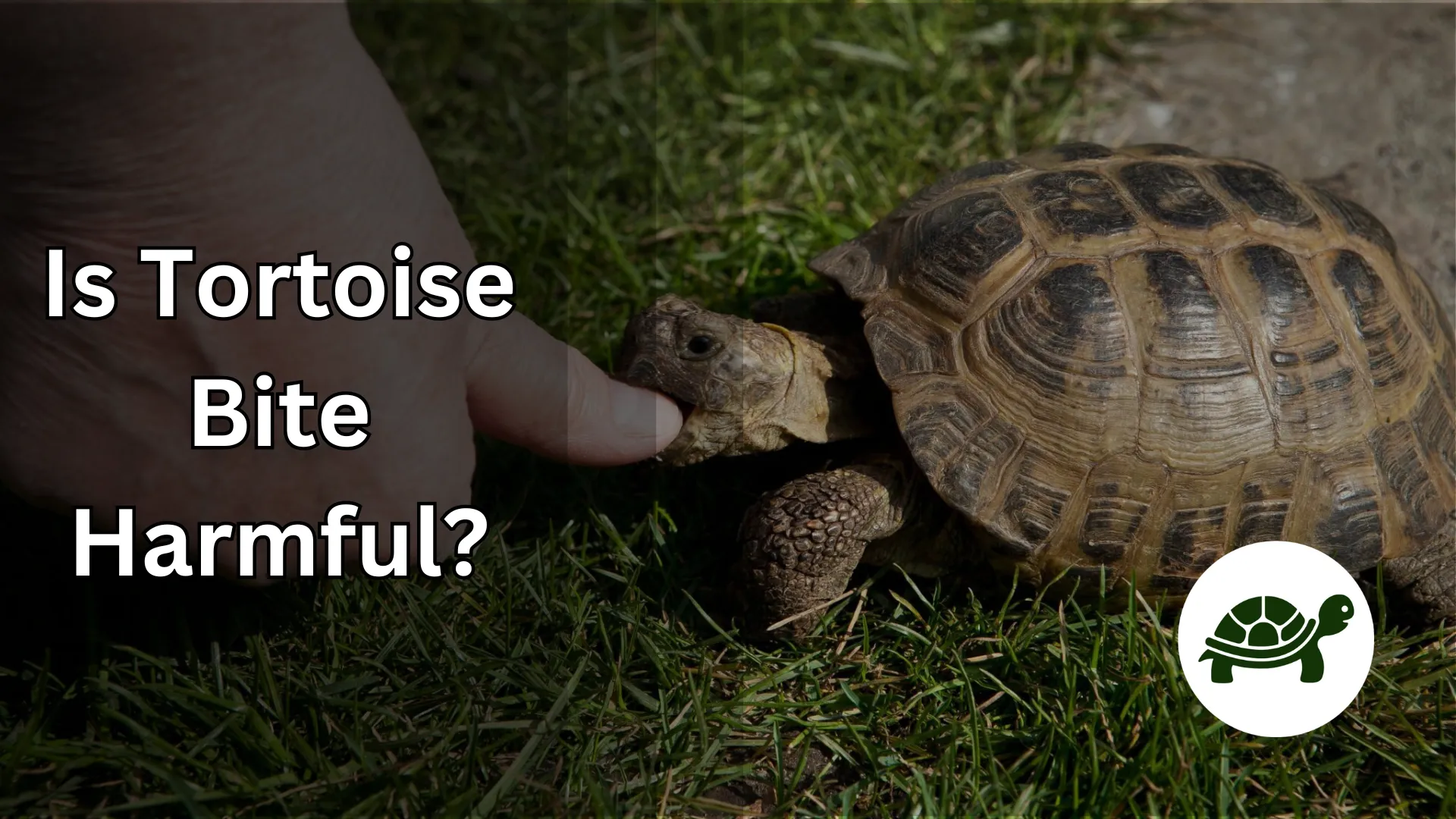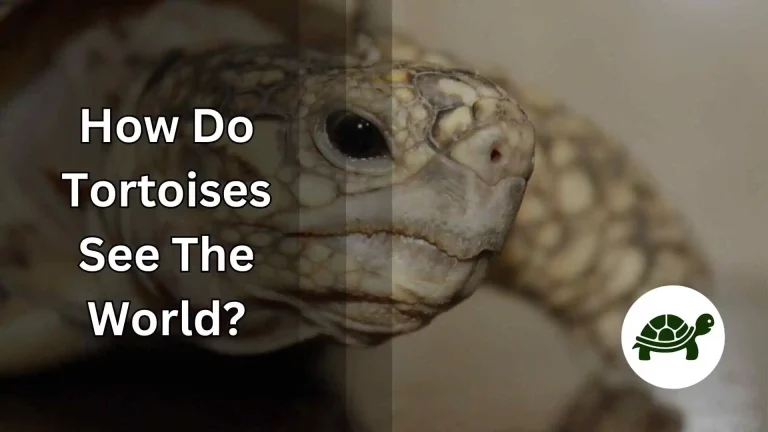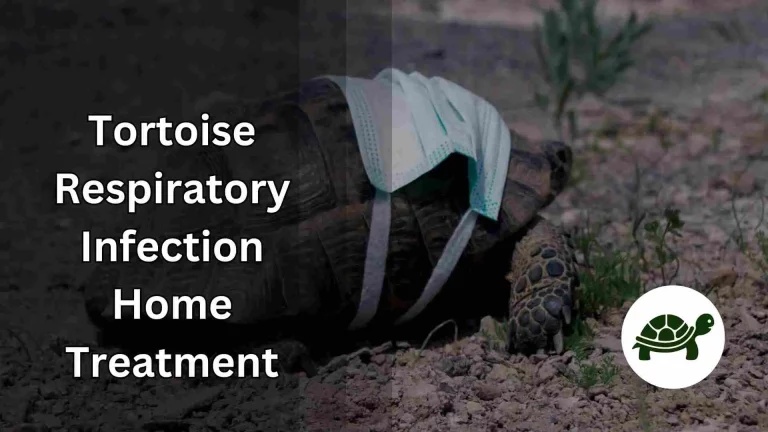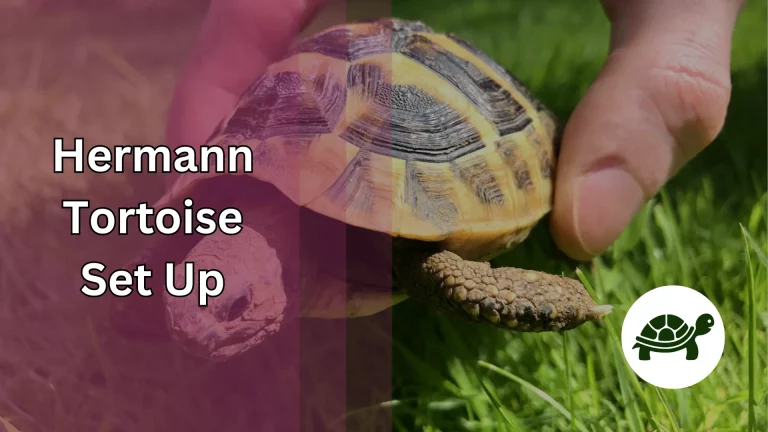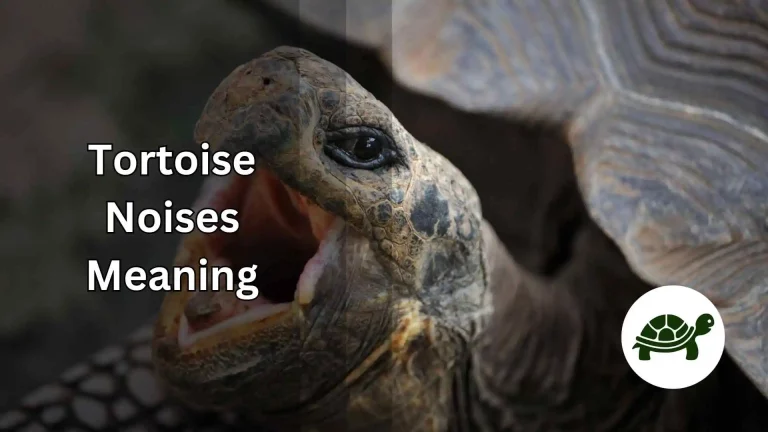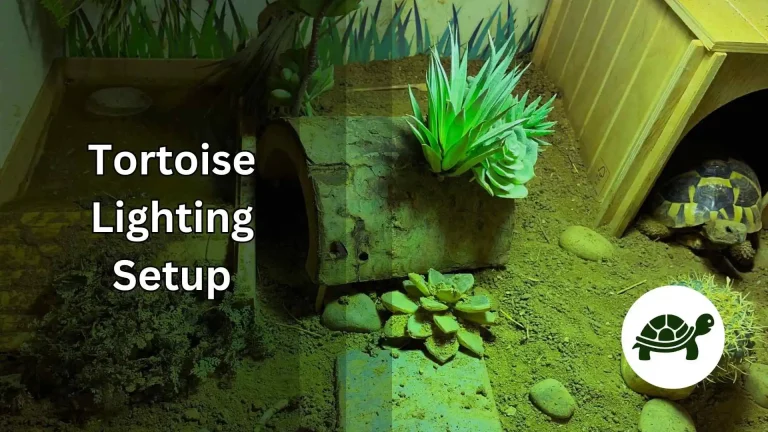Is Tortoise Bite Harmful? – All You Need To Know
Tortoises, with their slow gait and wise appearance, have captivated the hearts of many as gentle and fascinating pets. However, as with any animal, interactions can sometimes lead to unexpected behaviors, such as biting. Many tortoise owners and enthusiasts often wonder: Is a tortoise bite harmful? While these creatures are generally peaceful, understanding the nature of their bites is crucial for both effective care and personal safety. This blog post delves into the realities of tortoise bites, demystifying common myths and providing essential knowledge for both current and prospective tortoise caretakers.
In the following sections, we’ll explore the reasons behind a tortoise’s bite, assess the potential dangers, and offer practical advice on prevention and care. Whether you’re a long-time tortoise owner or just considering adopting one, this guide aims to equip you with the necessary insights for a harmonious coexistence with these remarkable reptiles. So, let’s dive in and uncover the truth about tortoise bites in our quest for responsible and informed pet ownership.
Causes of Biting
Understanding why tortoises bite is key to preventing these incidents. Contrary to what some might think, tortoises don’t bite out of malice. In fact, there are a few common reasons that can trigger this behavior. Knowing these can help you create a safer and happier environment for your shelled friend.
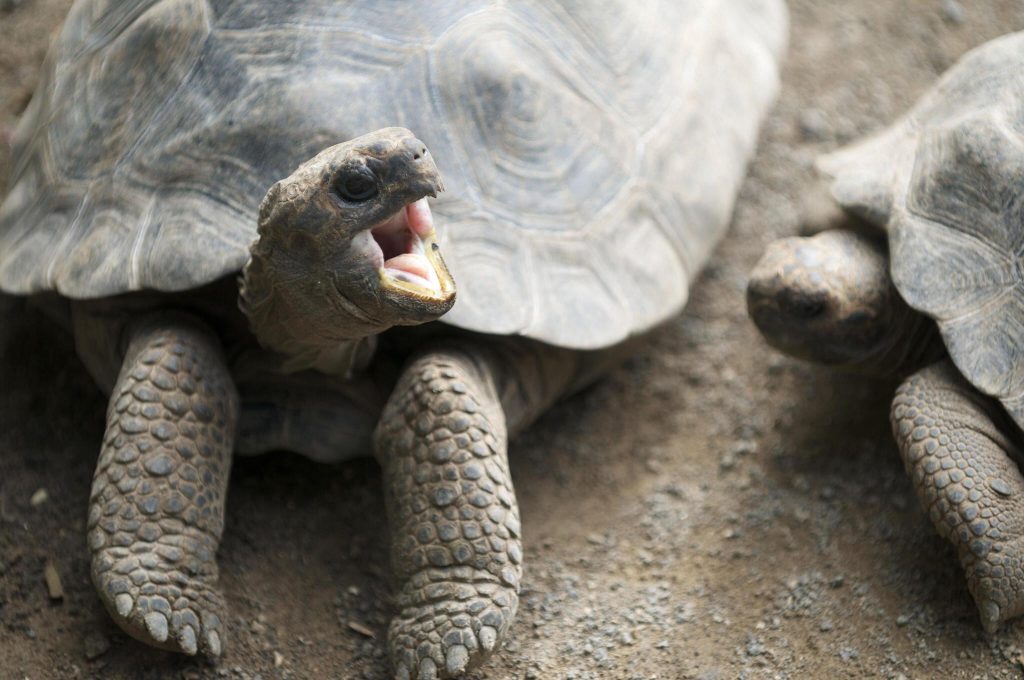
Firstly, tortoises might mistake your fingers for food, especially if they’re used to being hand-fed. Bright nail polish or moving fingers can look like a tasty treat to a hungry tortoise. It’s an innocent mistake, but it can result in a surprising nip. Secondly, tortoises can bite if they feel threatened or scared. Sudden movements or unfamiliar situations can cause stress, leading to a defensive bite. It’s their way of saying they’re not comfortable with what’s happening.
Lastly, during mating season, male tortoises can become more aggressive. They might bite as part of their natural mating behavior. This is more common in certain species and is something to be aware of if you have a male pet tortoise. Remember, understanding these causes isn’t just about avoiding bites; it’s about ensuring your tortoise feels secure and content in its home.
Are Tortoise Bites Dangerous?
When it comes to tortoise bites, many wonder about the danger they pose. The good news is that, generally, tortoise bites are not seriously harmful. However, understanding the potential risks is important for both your safety and the well-being of your pet.
Tortoises have strong jaws, but their bites typically don’t cause severe injury. The impact varies depending on the tortoise’s size and species. Smaller tortoises may only leave a small mark or pinch, but larger species can exert more pressure. While these bites are rarely serious, they can be surprising and a bit painful. It’s similar to getting pinched hard – uncomfortable, but not dangerous.
In rare cases, a bite might break the skin. If this happens, treat it like a minor cut. Clean the area well and apply a disinfectant. Keeping the wound clean is key to preventing infection. Remember, tortoises aren’t naturally aggressive. If a bite occurs, it’s usually a sign of fear or confusion, not aggression. By understanding your tortoise’s behavior and handling them gently, you can minimize the chances of getting bitten.
Medical Concerns and First Aid
Dealing with a tortoise bite might seem daunting, but knowing the right first aid steps can make all the difference. While most tortoise bites are not severe, it’s important to treat even the smallest bite with care to prevent infection.
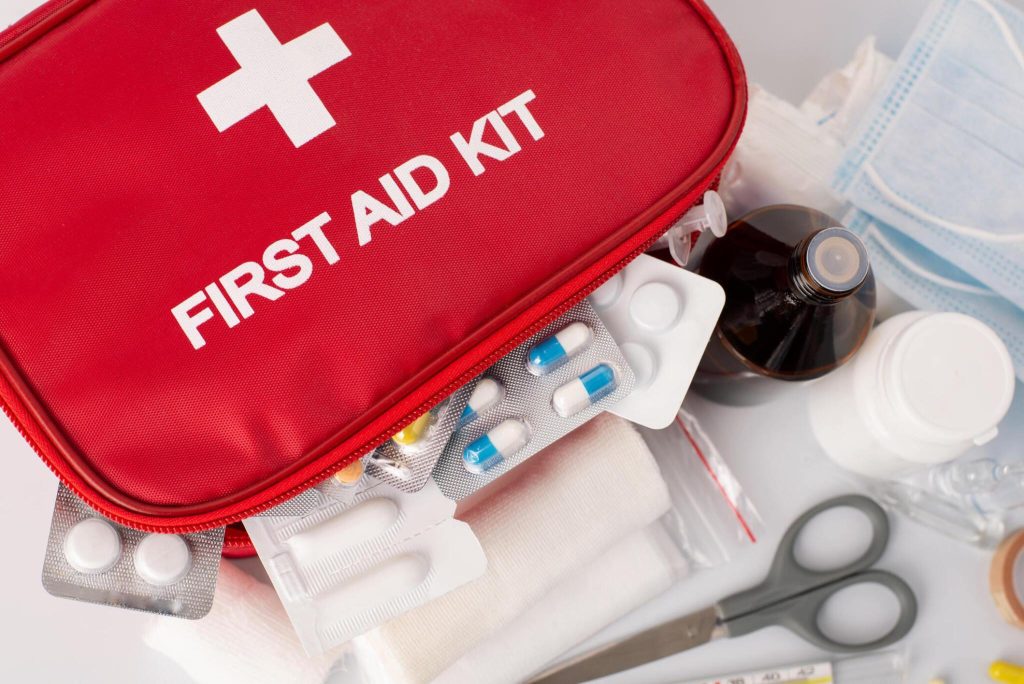
If a tortoise bites you and breaks the skin, the first thing to do is to stay calm. Gently wash the wound with soap and water. This helps to remove any bacteria and reduces the risk of infection. Pat the area dry and apply a gentle disinfectant. If you have a bandage, cover the wound to keep it clean. It’s simple care, but it’s crucial for proper healing.
Keep an eye on the bite over the next few days. If you notice any redness, swelling, or if it becomes painful, it’s a good idea to visit a doctor. These could be signs of an infection, and you might need additional treatment. Remember, tortoises can carry bacteria in their mouths, just like any other animal. It’s rare, but infections can happen. Taking these easy first-aid steps can help ensure your safety after a tortoise bite.
Preventing Tortoise Bites
Preventing bites from your shelled friend is easier than you might think. With a few simple steps, you can create a safe environment for both you and your tortoise. Understanding and respecting your tortoise’s space and behavior is key to a bite-free relationship.
Firstly, be mindful when feeding your tortoise. Use tongs or place food directly on the ground instead of hand-feeding. This helps your tortoise understand that fingers are not food. Secondly, move slowly and predictably around your tortoise. Quick, sudden movements can startle them, leading to defensive biting. Approach them gently and let them come to you.
Another important tip is to recognize the signs of stress or aggression in your tortoise. If they retreat into their shell or hiss, give them some space. These are clear signals that they’re not comfortable. Lastly, regular handling can help your tortoise get used to your presence. However, always handle them with care, supporting their entire body to make them feel secure.
By following these simple guidelines, you can enjoy a peaceful and happy coexistence with your tortoise, reducing the likelihood of any biting incidents.
Frequently Asked Questions (FAQs)
Q1. Do All Tortoises Bite?
Not all tortoises will bite, but all species have the potential to. Whether a tortoise will bite depends on its individual personality, how it’s been handled, and the situation. Some are more docile, while others might be more prone to biting when scared or stressed. Understanding your tortoise’s behavior and respecting their space can significantly reduce the likelihood of biting.
Q2. How Can I Tell if a Tortoise is About to Bite?
Tortoises often give signs before they bite. They might hiss, pull their head back quickly, or open their mouth as a warning. These are signs of fear or discomfort. If you see these behaviors, it’s best to give your tortoise some space and not attempt to handle it at that moment.
Q3. Is It Safe for Children to Handle Tortoises?
Children can safely handle tortoises under adult supervision. Teach children to be gentle, move slowly, and avoid sudden movements. It’s also important to educate them about the signs of a stressed tortoise. After handling, remind children to wash their hands as tortoises can carry bacteria like salmonella.
Q4. Can Tortoise Bites Transmit Diseases?
While it’s rare, tortoise bites can transmit bacteria, including salmonella. This is why it’s essential to clean any bite thoroughly and monitor it for signs of infection. If you’re bitten and the wound shows signs of infection or if you feel unwell, it’s important to seek medical attention.
Q5. How Do I Get My Tortoise to Stop Biting?
Consistent, gentle handling can help your tortoise become more accustomed to human interaction and less likely to bite. Understanding and respecting their behavior is also crucial. If your tortoise tends to bite when being fed, try changing your feeding method, like using tongs or placing food directly in their enclosure.
Conclusion
In wrapping up our exploration of tortoise bites, it’s clear that while these incidents can happen, they are generally not a cause for serious concern. The key lies in understanding and respecting our shelled companions. Remember, tortoises, like any pet, require patience, understanding, and a bit of knowledge about their behavior and needs. By taking the time to learn about these fascinating creatures and how to interact with them safely, you can ensure a harmonious and enjoyable relationship with your pet tortoise.
We hope this guide has shed light on the nuances of tortoise behavior, especially regarding biting, and provided you with the tools and knowledge to prevent and manage these rare occurrences. Whether you’re a seasoned tortoise owner or considering bringing one into your home, keeping these insights in mind will help create a safe and loving environment for your pet. Here’s to many happy, bite-free years with your tortoise!

